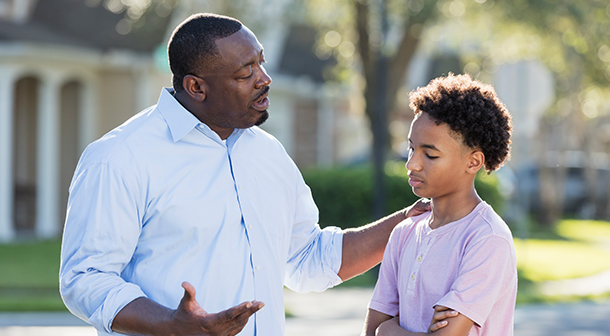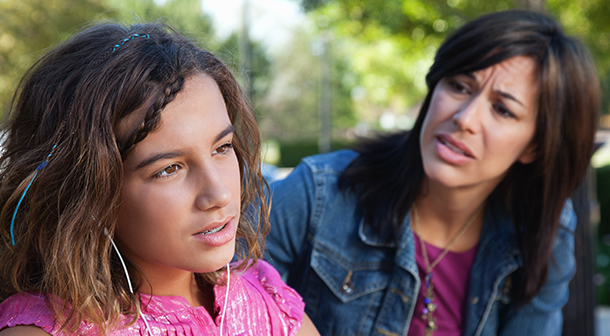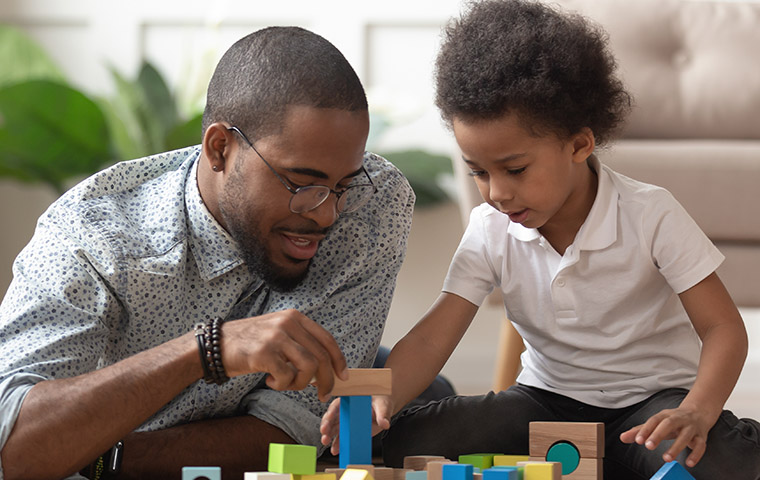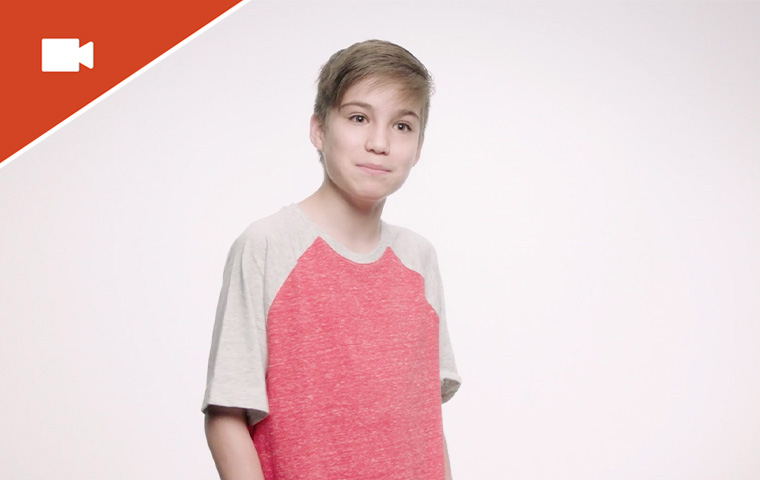It seems like only yesterday your child was looking to you for guidance and approval, and now you're more likely to get an eye roll from your teen than a smile. How did things change so fast, and how can you maintain positive discipline without turning every encounter into a power struggle?
Stay positive. Parenting teenagers is challenging and finding the right type of teen discipline that works for your family is not always easy. Your child is growing and changing, and your parenting techniques must change with them. Building those techniques on positive parenting will help you find a path forward together.
It helps to realize that your teen is naturally wired to seek more independence and find her (or his) own identity, which often leads to questioning parental authority and testing boundaries. Teen discipline is important for teens and parents. Even though it can be frustrating, tiring, and even scary to see your child pull away and take risks, it's important to stay involved and keep the lines of communication open. Open communication is a key positive parenting technique.
Since she was little, your child has been learning what to say and how to say it to get what she wants. As kids become teens they might even think they're master negotiators. Consistent, calm communication is your greatest tool to maintaining positive and effective discipline.
Good Communication = Positive Parenting
As your kids grow and become independent, it might feel like you're replacing fun and togetherness with endless lectures about rules and responsibility. Teens complain that their parents don't listen to them and parents say the same about their teens. Our lives are so busy that we too often try to fit talks in during car rides or between commercial breaks. It's hard to set aside time for meaningful conversations, especially when things seem okay and you don't want to rock the boat. But setting a dedicated time and space to talk to your teen about her life shows that you're serious about communicating. Step away from other tasks so you can give your full attention to your teen, which should help her be more engaged. Set aside phones, turn off the TV and computer, and focus on listening to each other.
Need parenting help now?
The Texas Parent Helpline is available 24/7.
- Call 833-680-0611
- Chat with us
- Text 833-680-0611

Here are some positive parenting tips that can help you communicate better with your teen:
-
Be calm and confident.
Avoid power struggles. Don't start arguing about the rule itself. Focus on the fact that it was broken. Staying firm and reminding her there are family rules she must follow is a key step in effective teen discipline
-
Stay connected by being a good listener.
It may take a few minutes for your child to get to the point but be patient and don't try to hurry her along. If you're not sure what she's trying to tell you, practice this positive parenting technique by asking open-ended questions like: "Can you tell me more about that?" or "How did that make you feel?" to get more information or just to help her feel more comfortable in sharing with you.
-
Avoid lecturing or problem solving.
This is a tough one. We want to help our kids and think solving their problems is part of positive parenting. But teens are trying to figure out their own solutions, and often feel your solutions are a way of saying they're not capable of helping themselves. Instead of offering a solution, ask questions such as: "What do you think?" or "How could you handle it next time?" and really listen to what they say. This shows you value her opinions and allows her to do the problem solving.
-
Be empathetic.
Listen without judgement and connect with her on an emotional level. If she complains about how a teacher treated her, it might feel natural to tell her to try harder to get along with the teacher or ask what she might have done to upset the teacher. The positive parenting approach is to think about how you would feel if you had a conflict at work and wanted a sympathetic ear rather than advice. Acknowledging her feelings and offering your support is a great form of positive parenting. Ask if she wants your suggestions before you offer them.
These tips help with everyday communication, but they are even more important when conflicts come along. Calm, consistent, connected communication helps build a stronger relationship with your child and will help when it comes time to discipline your teen.
When you take the time to listen to your teen, you communicate that she is heard, recognized, and loved. Teens who don't have that sense of belonging may be faster to fight (with defiance or back talk, for example), flee (through lying or sneaking), or flop (accept their fate as less worthy and stop trying).
Rebellion and Risk-Taking
Adolescence is filled with trial and error as teens explore and try new things. Conflicts often happen when teens rebel against family rules or take risks. Parents need tools for teen discipline when conflicts happen…and they will happen!
At times, almost all teenagers will talk or act in ways that seem rebellious to their parents. Common forms of "rebellion" include choosing inappropriate clothing, hair styles, friends, or activities. Since peer relationships are so important to teens, they are likely to be influenced by what pleases their friends more than what pleases their parents. This is especially true among 13- and 14-year-olds who want more control over their lives. This is the age when you are likely to see eye-rolling and hear, "Why not? Everyone else is doing it!"
It is normal for teenagers to be defiant at times, and how you respond can make a big difference. One positive parenting technique is to remain calm when your teen behaves unexpectedly. If she shows up with purple hair, consider whether it's really an issue worth butting heads over. It may not be your preferred color, but it probably won't hurt her. Of course, you can't ignore some behavior, but being calm is never a bad first response. Stay firm with teen discipline if she wants to leave the house in clothes you've already said are inappropriate and calmly explain how she is violating house rules.
Do your best to remember that she is trying to find her own way and her decisions are not a reflection on you. She may not think she's rebelling by picking clothes, music, and friends you don't approve of. Teens often just feel they are expressing their views and are not really trying to shock or anger their parents. Understanding that can help you make positive decisions about teen discipline and remember to choose your battles. It's is okay to give in at times as long as your child is not in danger. Save your energy for any bigger problems that arise.
Risk-taking is also a normal part of growing up. However, risks can be scary and this is a time when positive discipline and positive parenting techniques are critical. Engaging in sexual activities, unsafe driving, or experimenting with tobacco, drugs, or alcohol can have long-term consequences. Teens need to understand the risks they are taking could lead to severe outcomes that can't be changed. One of the best ways to prevent bad behavior is maintain an open line of communication so you will know what your teen is doing and who she is hanging out with.
Find ways to provide healthy risk taking such as rock climbing, skateboarding, creating art, making music, or going on day trips with friends. The more you can provide opportunities for adventure and independent decision-making, the less she will feel a need to take unhealthy risks.
Watch for Warning Signs
Skipping school, a decline in grades, trouble sleeping, always alone, or weight changes. If you see these, talk to a counselor or your child's pediatrician.

4 Positive Discipline TipsThat Can Bring Peace to Your House
Many conflicts occur over everyday issues like curfews, friends, school, and appearance. The following positive parenting techniques can help you minimize conflict with your teen and create a more peaceful household for everyone.
-
Negotiate in advance.
You can probably anticipate issues that are likely to cause conflicts, such as your teen not checking in on time when she's out with friends. Take a positive discipline approach by talking to your teen when things are calm. You can say something like: "It's very important to me to know where you are. Let's come up with a plan for how you can check in on time and what we're going to do if I don't hear from you. What do you think sounds reasonable?" Approaching your teen in this manner lets her know you value her opinion and are willing to listen. Psychology research shows that teens are more responsible and cooperative when they have been involved in the decision-making. Remember that teen discipline will be more effective if you stay focused on the future while you negotiate. This isn't the time to revisit the teen's past mistakes.
-
Provide predictable expectations and consequences.
It's up to you to establish the house rules and make sure your teen knows what they are. Believe in the rules you set, be consistent, and stick with them. Set consequences that fit the offense. For example, a 16-year-old who stays out two hours past curfew may be grounded for two weeks. Grounding her for months is unrealistic and doesn't teach a lesson. A 16-year-old who doesn't turn in a major paper for school will face the consequence of a poor grade. Using positive discipline, you can sympathize with how unpleasant the consequences are and tell her you are available if she wants to talk over how to avoid them in the future. Resist the urge to withdraw signs of love and affection. You can love your child immensely while also enforcing consequences at the same time. Maintaining the relationship is key to your child learning from her mistakes.
-
Provide positive feedback.
Look for opportunities to praise your teen. Praise her for wearing an outfit you like or handling a situation well. Telling her, "I really like your …" or "I'm impressed with how you …" can do wonders for her confidence and improve your relationship. As hard as it may be, try to resist the urge to "caboose," which is to tack on a negative statement at the end that can undermine your praise. For example, try not to say: "I'm proud of you for getting home from school on time. Why can't you do that every day?"
-
Role model good behavior.
You may not realize it but your teen is watching your every move. Being a good role model means demonstrating the skills you want your teen to learn rather than telling her about them. Try your best to keep your word when you make a commitment. Pay attention to what your child is saying and listen before you act. Discuss difficult topics and solve problems together and in a respectful manner. Positive parenting techniques include acknowledging and apologizing when you are wrong because everyone makes mistakes sometimes.
Give yourself a timeout if you are angry or stressed in a moment of conflict or need to consider how to discipline your teen. Agree to address the situation after everyone has a chance to cool down and think it over. Make sure your teen knows that you care enough about her and your relationship to step back and spend some time to calmly think over the best way to handle the situation. It's not about leaving her alone, it's about being able to be your best self.
Establish Meaningful Consequences
Finding the right positive discipline techniques for misbehavior is key. As a parent, you know best what is going to motivate your child. Try one of the following teen discipline strategies that may be right for your situation.
Reduce screen time.
Restrict the availability of time on the smartphone, laptop, television, or video games. Use this time away from the screen to connect with her. Schedule some time to talk, hang out, or do an activity together. More opportunities to connect might just be the key to less behavioral issues.
Plan an activity to teach.
Find ways to teach better choices through an activity that is relevant to the situation. Practicing skills and giving your teen the chance to get them right can give her the muscle memory and confidence to make better choices. Decide what it is you want her to learn and then create an opportunity to practice the skill, such as respect, cooperation, punctuality, completing a task properly, or following directions.
Make the consequence relevant.
If her behavior hurt someone or something, use positive discipline to repair it. For example, she may need to save up to pay for car damage or take on extra chores to help someone else in the family.
Tighten the rules.
If your teen violates the house rules, she may not be able to handle the freedom she has. Try giving her an earlier curfew or restricting the time she's allowed to use electronics. If she can follow the rules, talk about returning to the original guidelines. Try to find a compromise after getting everyone's feedback on the rules, what is working, and what needs revising.

Assign extra responsibilities:
Try positive discipline by giving her additional duties that support the family, such as washing the dishes, cleaning the kitchen, or working in the yard. Don't treat chores like a punishment. Let her know that showing she can be responsible is a way to earn back privileges. One way to get buy-in is to do the chore with her to let her know you're there to support her even when she messes up.
Dealing With Your Teen
Parental Self-Care Tips
Positive parenting encourages you to stay positive about yourself even when things are tough. Try to remember it's not personal when your teen lashes out with rude words or gestures. Emotions run high during adolescence, and teens may get highly frustrated when things don't go their way. They are figuring out how to navigate new situations, just as they did when they were toddlers, and they still need your steady guidance to help them find their way.
Adolescence is filled with opportunities to learn and grow, and so is parenting adolescents. No one gets it right all the time, so give yourself a break when a teen discipline strategy doesn't go well. Remember that you and your teen are both doing your best during this challenging phase.
Do You Need Help?
Some degree of conflict between parents and teens is normal and expected. Trust your instincts if you feel the conflict goes beyond normal or if you suspect your teen is engaging in self-destructive behaviors such as drinking, drug use, skipping school, or is getting into trouble with the law.
Take a positive step and seek help. The Family and Youth Success program is available in every Texas county to support you and your teen. You can schedule an appointment or contact them to immediately connect with someone and get real answers. Also, the Texas Youth Helpline is free, available 24/7, and has many helpful resources for teens and parents. You don't have to handle the situation on your own!




